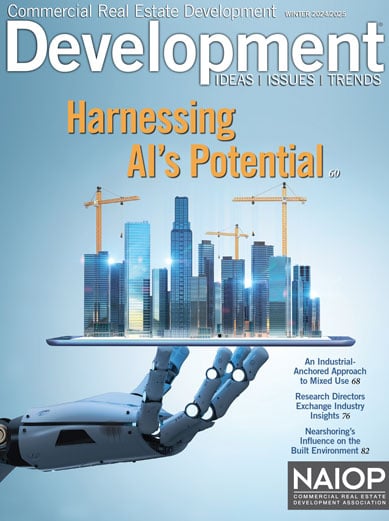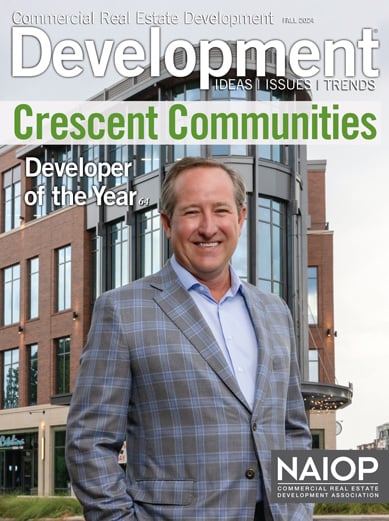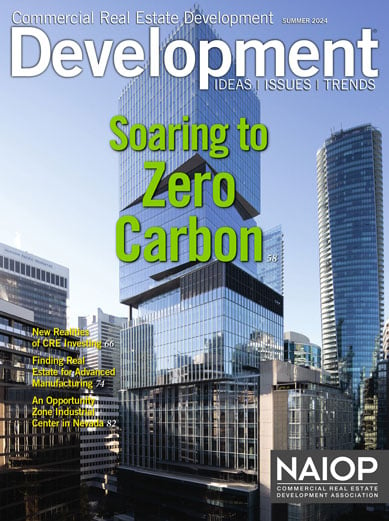The Future of Parking is in (Almost) Everyone's Hands
Mobile parking apps can help owners manage costs while boosting convenience for customers.
Use proactive planning to protect life and property.
Mobile parking apps can help owners manage costs while boosting convenience for customers.
They can improve the air, cut down on noise and drive productivity — as well as profitability.
In-depth information on employee preferences informs an office redesign in Boston.
The company’s new research facility takes a deep dive into cutting-edge logistics technologies.
Surging demand for e-commerce grocery deliveries could spark more construction of refrigerated facilities.
The flexible model is rapidly expanding beyond the office market.
The NAIOP Research Foundation's annual report highlights the relevant studies, activities and deep dives to come in 2020 and beyond.
The city has experienced a building boom during the latest cycle, and even more development is on the horizon.
Real Estate as a Service: What Developers/Owners Need to Know
Developers who focus now on 5G, smart buildings and cybersecurity will gain an advantage over their competitors.
A new NAIOP report shows how local governments are preparing for this transportation revolution.
Knowledge is critical when it comes to getting projects through the approval process.
These 10 steps can help developers avoid headaches, delays, higher costs and legal complications.
 Winter 2024/2025 Issue
Winter 2024/2025 Issue
Development magazine’s winter issue delves into the evolving uses of artificial intelligence in the commercial real estate industry, from lease management and building operations to portfolio assessment and data analysis.
 Fall 2024 Issue
Fall 2024 Issue
Development magazine’s Fall issue profiles Crescent Communities, explores the growing impact of spaceport real estate around Houston and along Florida’s Space Coast, the commitment to prioritize employee well-being and environmental stewardship in the design of REI Co-op’s latest distribution center, and the innovations involved in the development of EVE (Electric Vehicle Enclave) Park in London, Ontario.
 Summer 2024 Issue
Summer 2024 Issue
This issue features a cover story on The Stack, the first high-rise office project in Canada to earn Zero Carbon Building Design certification. Other feature articles examine the new realities of CRE investing across different sectors, the challenges of finding move-in-ready space for advanced manufacturing startups, and lessons learned from Mark IV’s acquisition and master planning of a 4,300-acre Opportunity Zone industrial project in northern Nevada.
